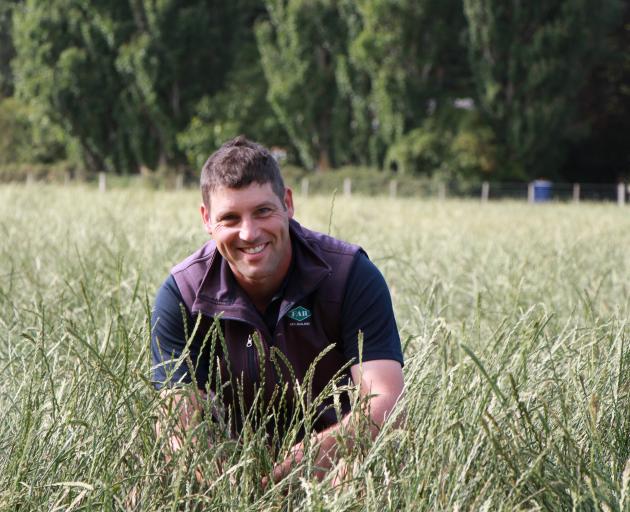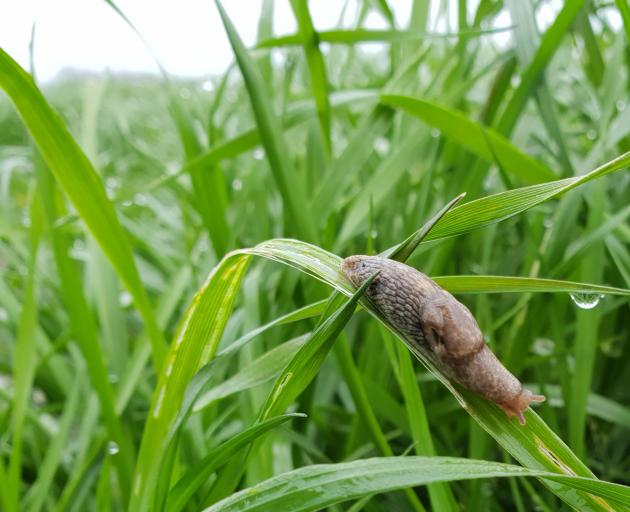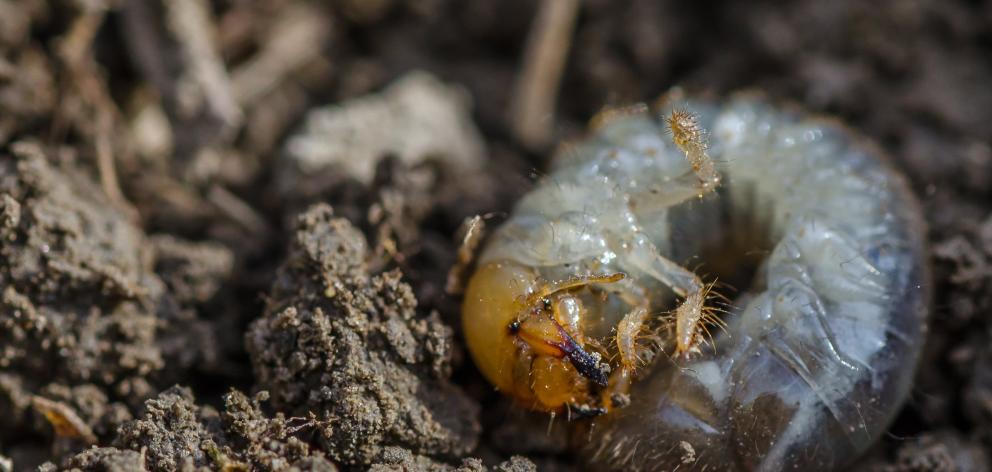
They are being advised by the Foundation for Arable Research to keep an eye out for building populations as they head into autumn sowing.
A bad grass grub year can result in an entire crop being replaced.
Researcher Richard Chynoweth said their impact ranged from minimal to the complete removal of some crops.
He said white clover seed crops could be susceptible to the insect pest and bad areas could deplete average yields of 500kg-600kg a hectare
"They can take whole areas of white clover out. Once they get to a row they just follow it and there can be real devastation."
In a bad year slugs could get through more than 30% of a crop. Most crops were susceptible to them, with clovers and brassicas struggling to recover. Dryland plantings were also vulnerable because of the wet season, he said.
Mr Chynoweth said the wetter-than-average December and January would mean a lot of grass grub eggs had survived and hatched into larvae.

"It's quite easy to find grass grub larvae now as the good feeding season means they are bigger than they would usually be at this time of year. On the up side, this means they are potentially more susceptible to cultivation damage, but on the downside, they’re hungry."
Many eggs are normally lost in dry years.
He said the wet season had led to some good weed strikes which would increase their growth rate.
"So there's actually quite a lot of food there for grass grub larvae at present, but once those weeds are removed, pre-sowing, they'll be sitting there waiting for the new crop to come through and can cause enormous damage at that point."
Mr Chynoweth said the use of a short-term, "almost sacrificial", cover crop as a grub food source could provide some protection of the main crops by advancing larval development so they stopped feeding earlier in winter.
The wet season would also have suited naturally occurring pathogens, but it was difficult to know what impact they would have on larval populations, he said.
" My suggestion to all growers is to get out with a spade and look at the number of larvae they've got, especially relative to how many seeds of the crop they're going to plant and make a call as to whether they need to need to put some treatment on.”

Grass grubs were more difficult to control than slugs once they got a hold below the surface.
Mr Chynoweth said the major reproductive period of slugs was just beginning, so it was unknown if the summer rainfall had influenced numbers to any great extent.
"However, it’s important to note that thanks to the wet season, non-irrigated farms are sitting on the same conditions as irrigated ones, and may need to be more vigilant than usual.
"As with grass grub, monitoring for slugs is going to be absolutely key, especially in the high risk crops like brassicas and clovers."
Arable growers are being advised that slug numbers could be higher in crops following clover and plantain.
If the weed pressure on cereals has kept them ticking along, then there's the potential for them to explode in almost any paddock.
Coastal parts of Canterbury had a slug problem last season and the year before it was bad in Methven,













